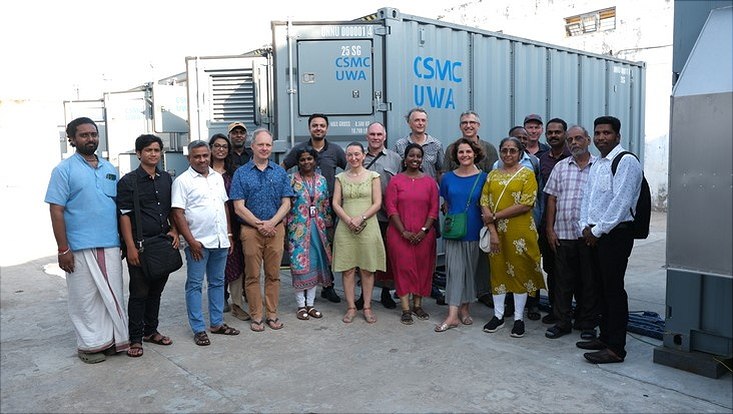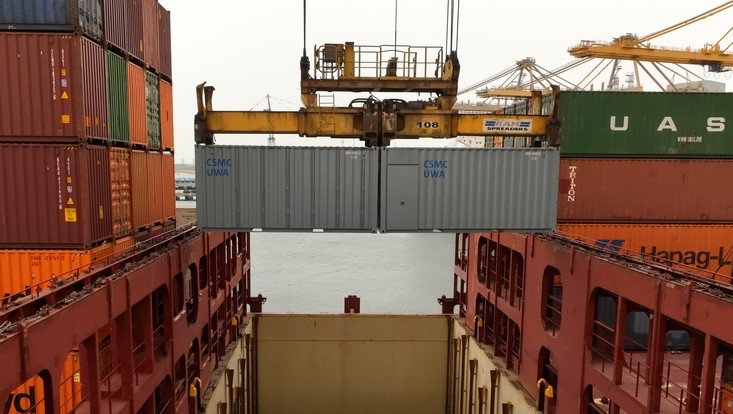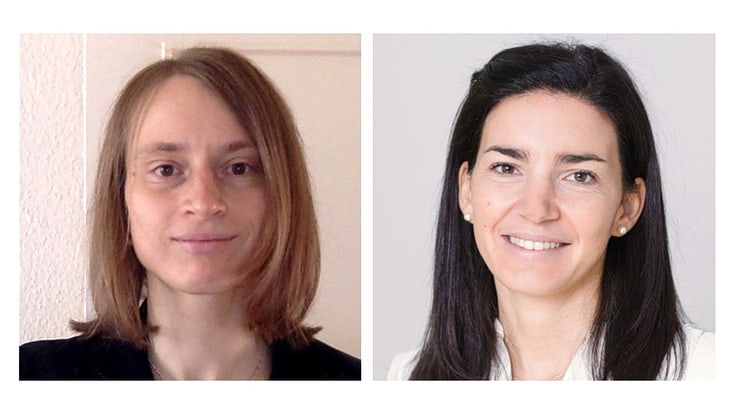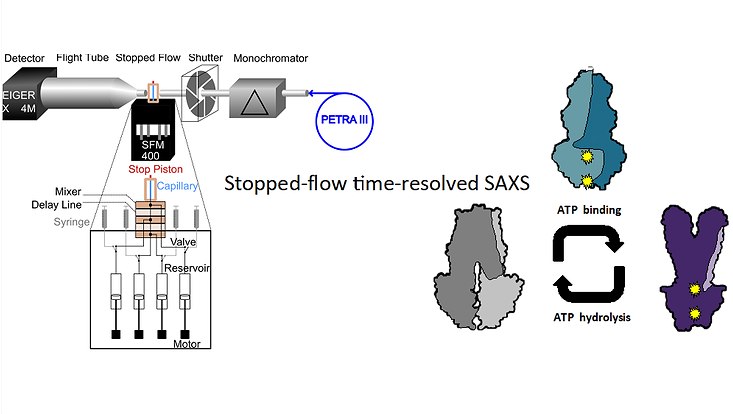CSMC Container Lab Arrives in India
20 June 2024

Photo: CMSC
After travelling by sea for almost two months, it has now reached its destination: the CSMC’s Container Lab has arrived in Puducherry, India, where researchers will be analysing historical palm-leaf manuscripts over the coming months. The local climatic conditions pose a particular challenge.
On the morning of 6 April, the Container Lab of the CSMC and its Cluster of Excellence UWA was loaded onto trucks in Bahrenfeld, Hamburg, and taken to the port. A few days later, they set off on board the container ship ‘Prague Express’. Due to the ongoing risks in the Suez Canal, the containers travelled around the Horn of Africa, covering a total of over 24,000 kilometres on the world’s oceans. Now the valuable cargo is back on land: the Container Lab, which consists of five laboratory containers, one supply container, and an additional one for storage, has arrived in Puducherry in south-east India. It is currently being prepared there by our team from Universität Hamburg for the arrival of the researchers who will be conducting material analysis work over the coming months.
Specifically, this involves analysing palm-leaf manuscripts stored on the premises of the Institut Français (IFP) and the Ecole francaise d'Extrême-Orient. The manuscripts are among the oldest of their kind and belong to the UNESCO Memory of the World. Markus Fischer, head of the Container Lab, and his colleagues and his colleagues Marina Creydt, Robin Dammann, Nathalie Holz, and Anastasia Poliakova will use aterial analyses to determine the exact identity and origin of the documents, which is unknown in most cases. The project is part of the ‘Palm-Leaf Manuscript Profiling Initiative’ (PLMPI) at the CSMC.
The climatic conditions on site pose a particular challenge: ‘The high humidity and temperatures make the analysis work, some of which has to take place under clean room conditions, difficult. From October onwards, the monsoon makes research temporarily impossible. During this time, the containers will be stored in weatherproof conditions so that work can continue from January 2025’, explains Markus Fischer.
Last week, the CSMC invited representatives from the German and French consulates and the IFP to celebrate the arrival of the Container Lab and to thank these institutions for their logistical support during the long preparations for this mission. After this long journey, everybody is now looking forward to get to the heart of the matter: the research. The first results of the analyses are expected at the end of this year.



